There is strong public support and recognition of the importance of critical minerals in every region of our province, across generations, and across the political spectrum. According to a survey undertaken by Spark*Insights and Abacus Data, three quarters of British Columbians would like to see the province become a world leader in supplying critical minerals that are vital to clean technologies and fighting climate change.
Source: Spark Insights, 2023
Permit to Prosperity
British Columbia stands at a pivotal moment. With an abundance of critical minerals essential for the global energy transition, BC has the potential to lead in responsible mining, attract significant private sector investment, and secure long-term economic benefits for its residents. To realize this potential, it is crucial to modernize and expedite the permitting process for critical minerals projects.
The stakes are high. BC has 17 world-leading critical minerals projects on the books including several that are poised to enter the permitting process within the year. If these projects are successfully developed, they will deliver lasting and real benefits – jobs for BC workers, stability for resource communities, and prosperity for the whole province. Their development and construction alone will deliver $36 billion in near-term investment, 302,000 person-years of employment, $23 billion in labour income, and almost $11 billion in tax revenues to support vital public services like healthcare and housing.
The long-term economic impact of operating these mines over several decades could reach $800 billion.
Critical Minerals Offer BC a Generational Opportunity
17
Proposed Critical Mineral Mines
$36B
in Near-Term Investment
300K
Person-Years of Employment
$23.6B
in Labour Income
$11B
in Tax Revenue

There is strong public support and recognition of the importance of critical minerals in every region of our province, across generations, and across the political spectrum. According to a survey undertaken by Spark*Insights and Abacus Data, three quarters of British Columbians would like to see the province become a world leader in supplying critical minerals that are vital to clean technologies and fighting climate change.
Source: Spark Insights, 2023
The Problem with BC’s Current Permitting Process
British Columbia is home to an abundance of critical minerals essential for the global transition to clean energy, including copper, nickel, and cobalt. These minerals are crucial for manufacturing batteries, solar panels, and wind turbines, making them indispensable in the fight against climate change. However, the permitting and approval processes that regulate mining projects in BC are unpredictable, take far too long, and are inconsistent with the urgent need to meet the rising demand for critical minerals to support the energy transition and Canada’s battery and EV industries.
The province’s permitting process, which can take from 12 to 15 years, is plagued by delays, duplication, and inefficiencies. This puts BC at a disadvantage in attracting private sector investment and realizing the economic and community benefits that come with critical minerals development. The current process not only delays economic growth but risks driving away investment to more agile jurisdictions, costing the province jobs, tax revenues, and long-term prosperity.
CASE STUDY
Skeena Resource’s Eskay Creek Project fully financed & ready for construction – awaiting final permits.


The Solution: Permit to Prosperity
It’s time for BC to adopt a streamlined, efficient permitting process for critical minerals mining projects – one that reviews and approves mining projects much more quickly, while maintaining BC’s world-leading environmental protections, which make our critical minerals the cleanest and most responsible in the world.
Reducing the time it takes to permit a mine from 12 to 15 years to 7 years will be a competitive advantage for BC in the global race to secure critical mineral supplies. The following actions are recommended.
Prioritize Critical Mineral Projects
Designate critical mineral projects as Regionally Significant, to provide them with the attention and resources they need for faster approval. Fast-tracking these projects will attract investment more quickly, leading to job creation and economic benefits.
Convene Joint Project Tables
Form joint project tables to align federal and provincial permitting and authorization agencies and processes for Regionally Significant projects. This will enhance project management, and improve coordination and accountability between departments to ensure reviews are efficient and effective.
Drive One Clear Process
Streamline federal and provincial processes into a single, coordinated review to eliminate duplication and reduce confusion. In environmental assessments, substitution of one process for the other should be the rule, not the exception. A clear unified process will make BC more attractive to investors and accelerate the creation of jobs and public service revenues.
Support First Nations Participation
Provide funding to build governance, administrative, and technical capacity within First Nations communities – essential for their meaningful participation in the permitting process. This approach fosters strong partnerships, advances economic reconciliation, and benefits all communities involved.
Invest in Electrical Infrastructure
Expand BC’s electrical grid and improve road and rail access to support the development of new mines and the expansion of existing ones. These investments are critical for advancing decarbonization, strengthening communities, and ensuring economic stability.
Maintain Rigorous Environmental Standards
Expedite the permitting process without compromising BC’s environmental protections. This ensures that BC continues to lead in responsible mining practices, producing the cleanest minerals in the world.
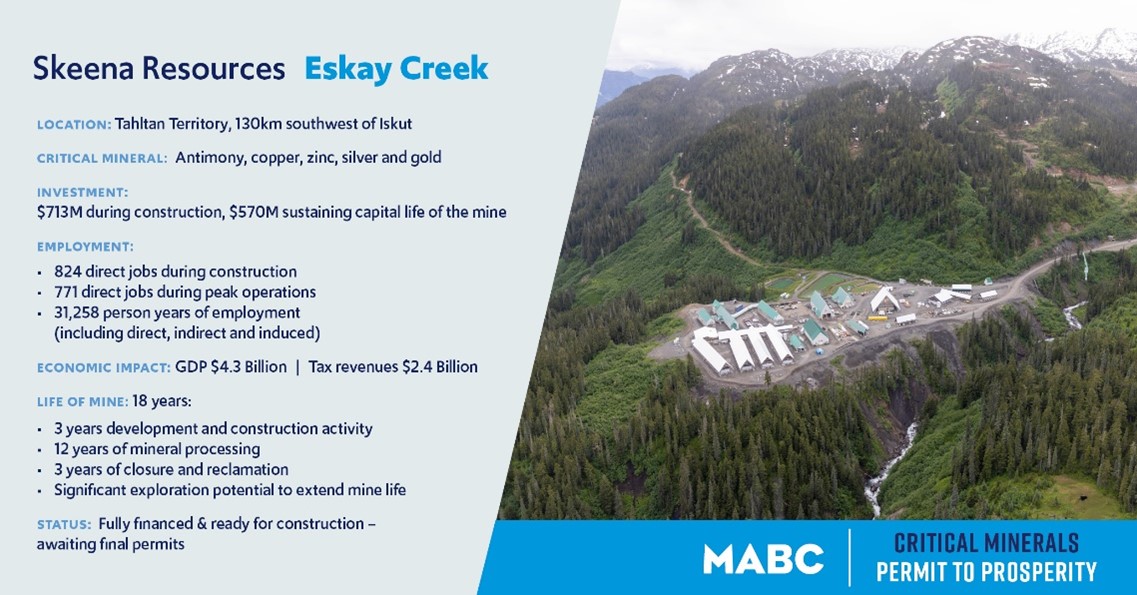
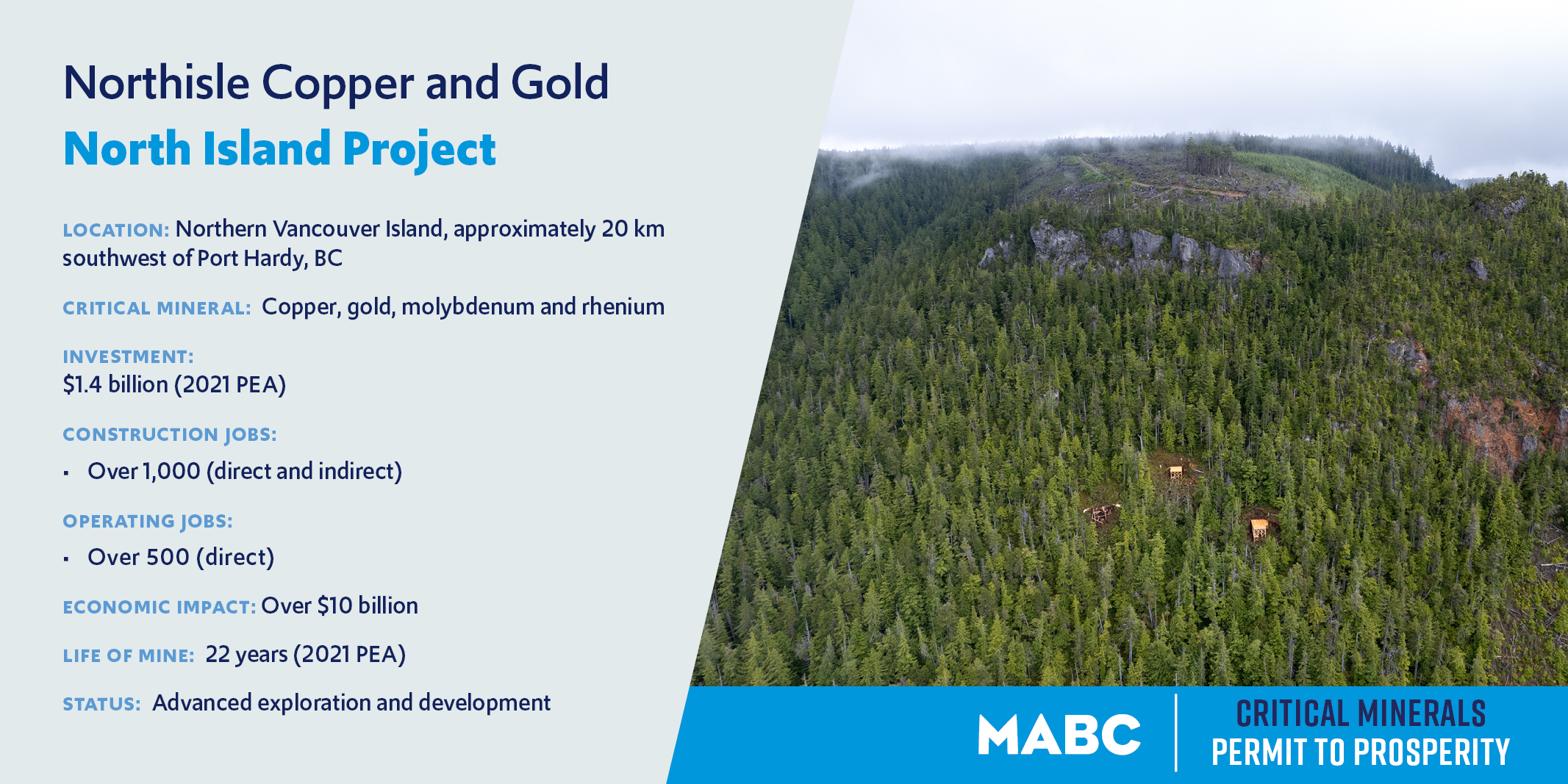
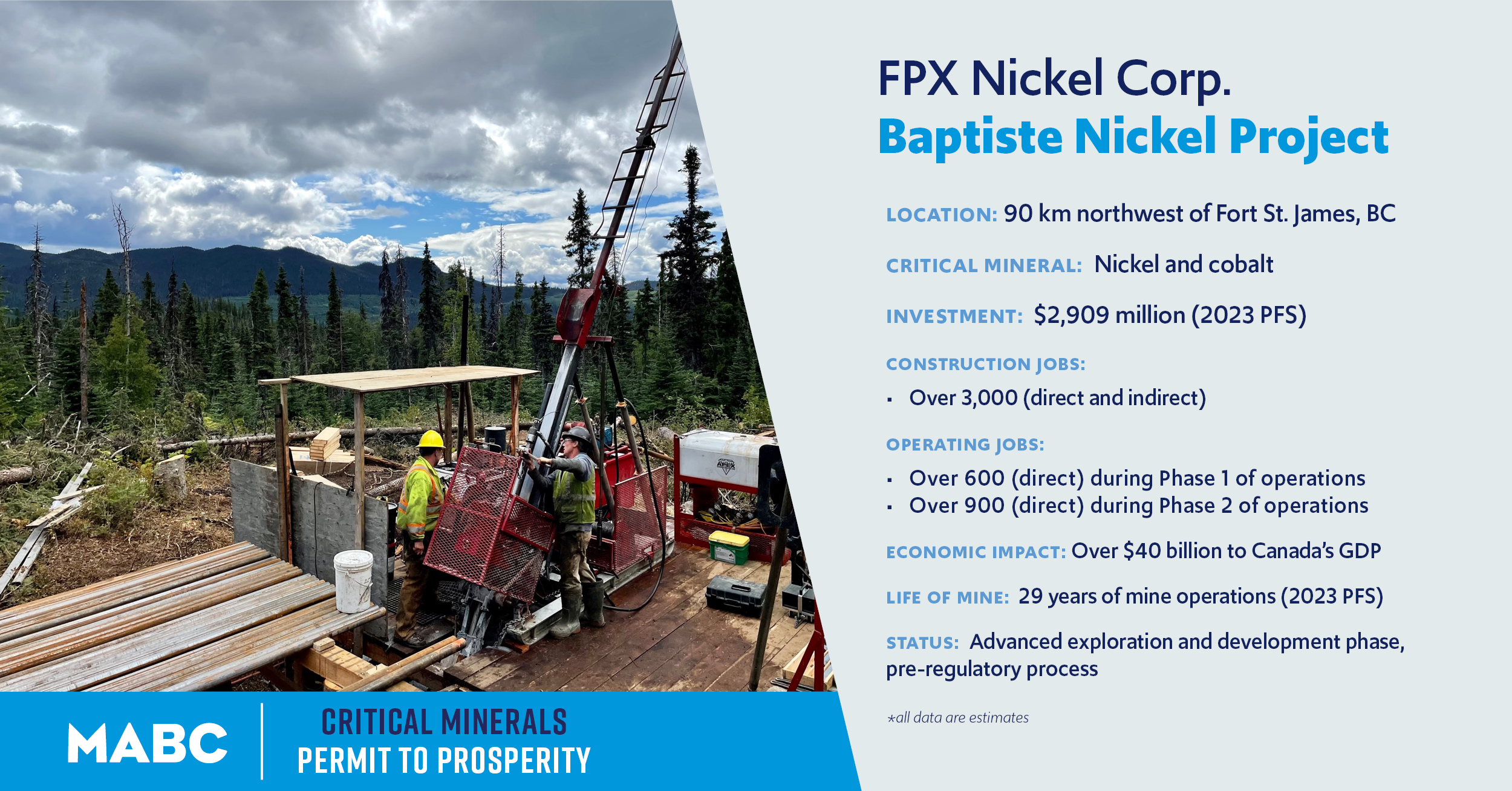
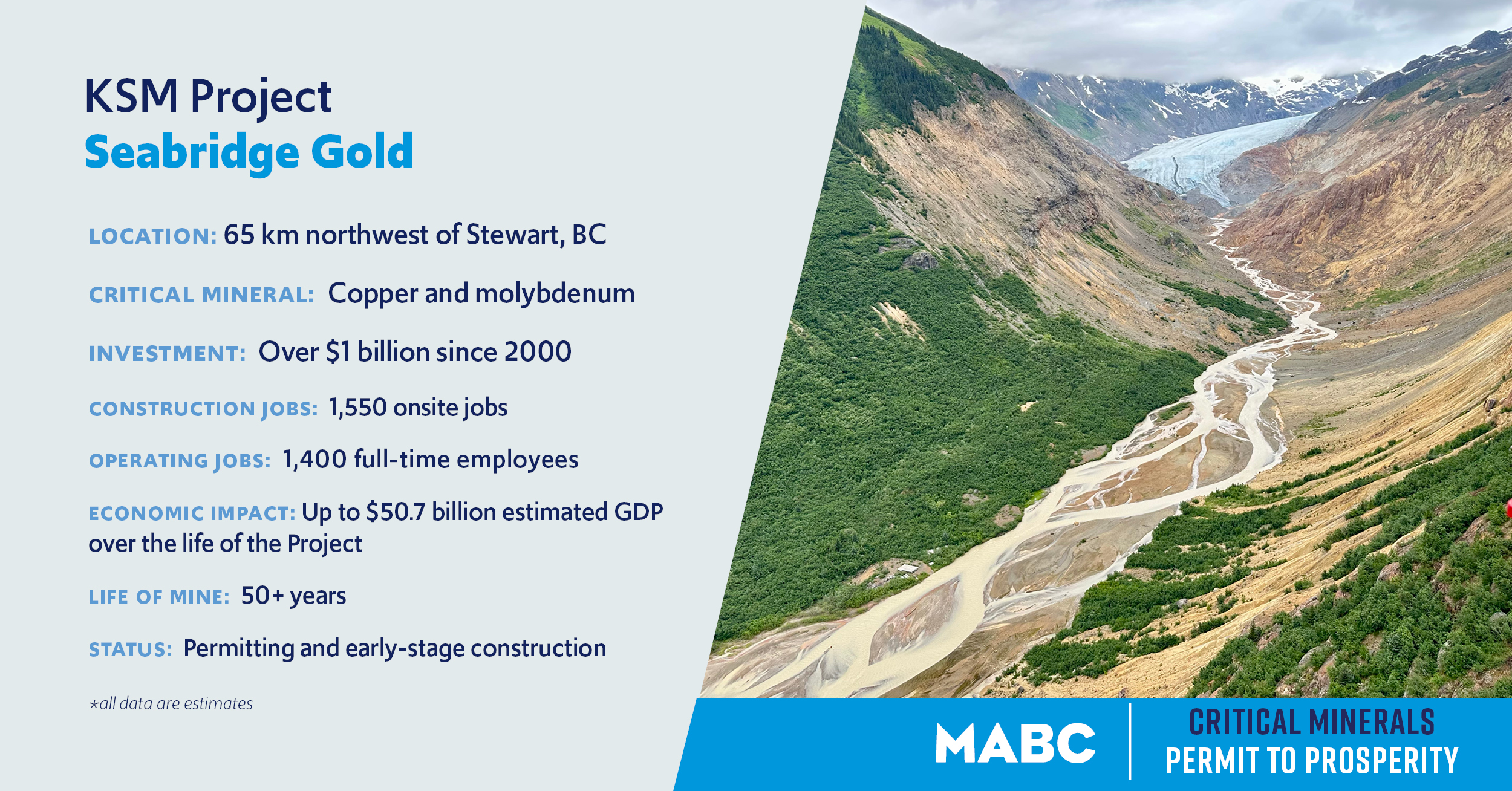
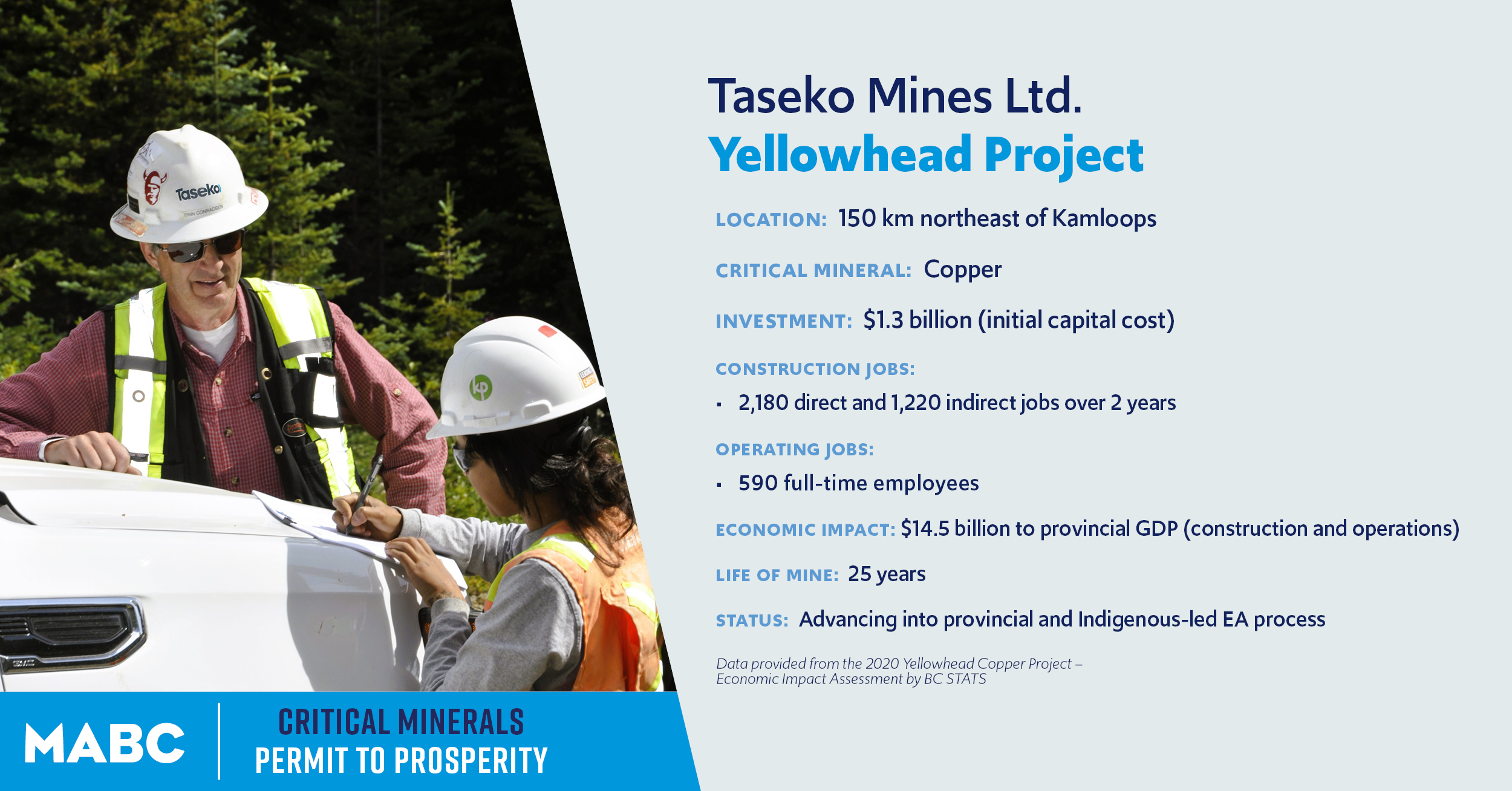
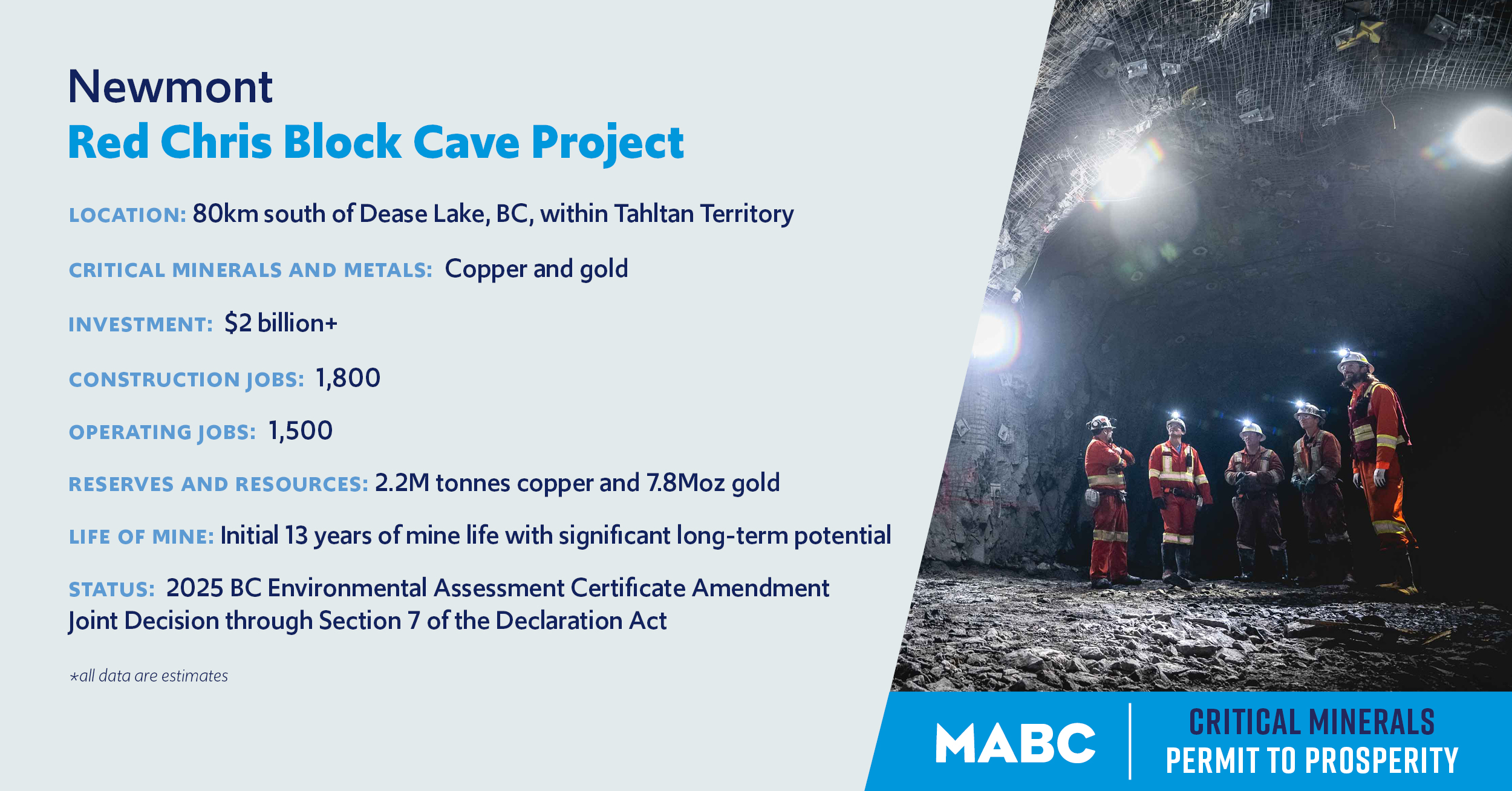
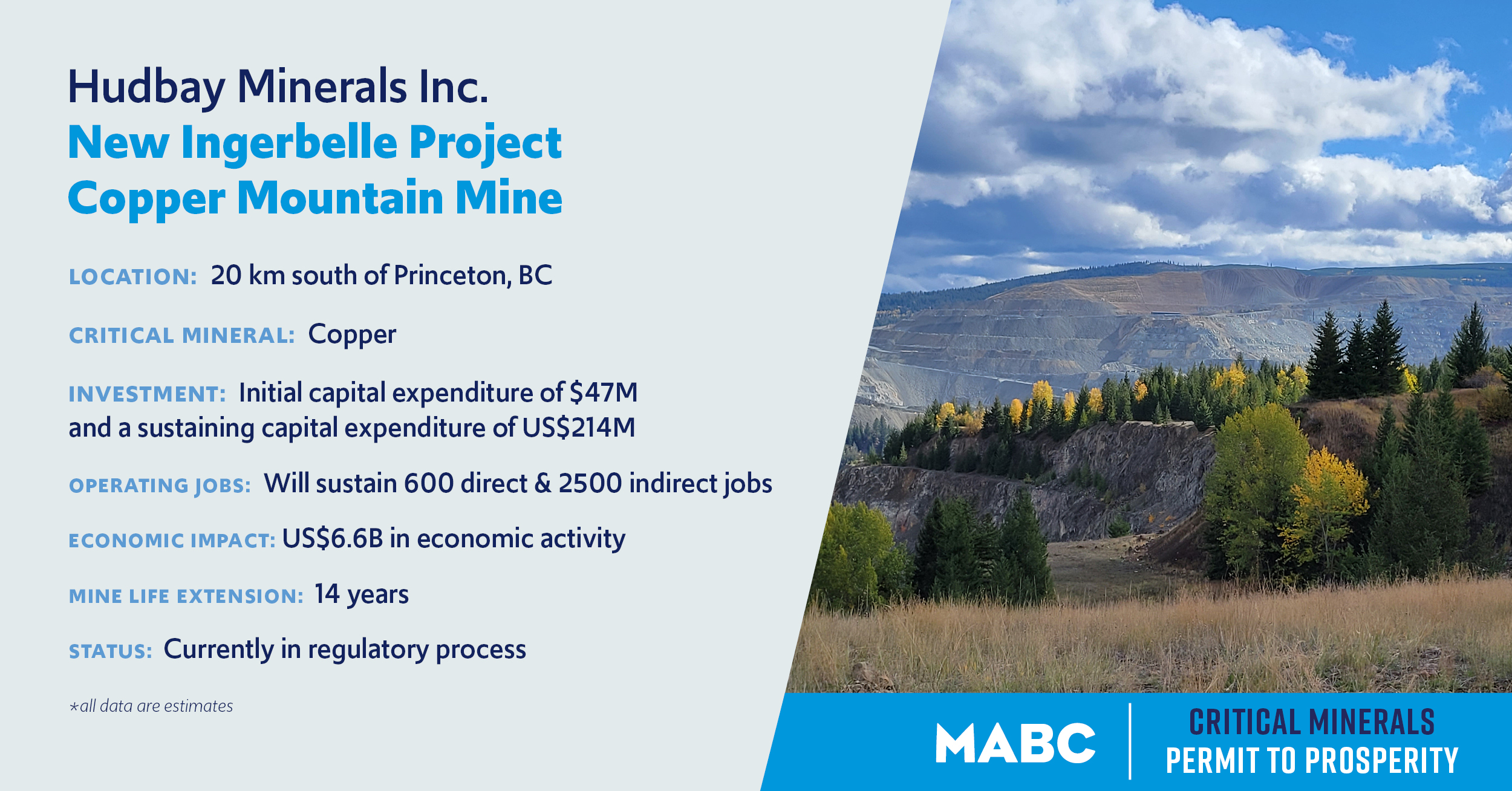
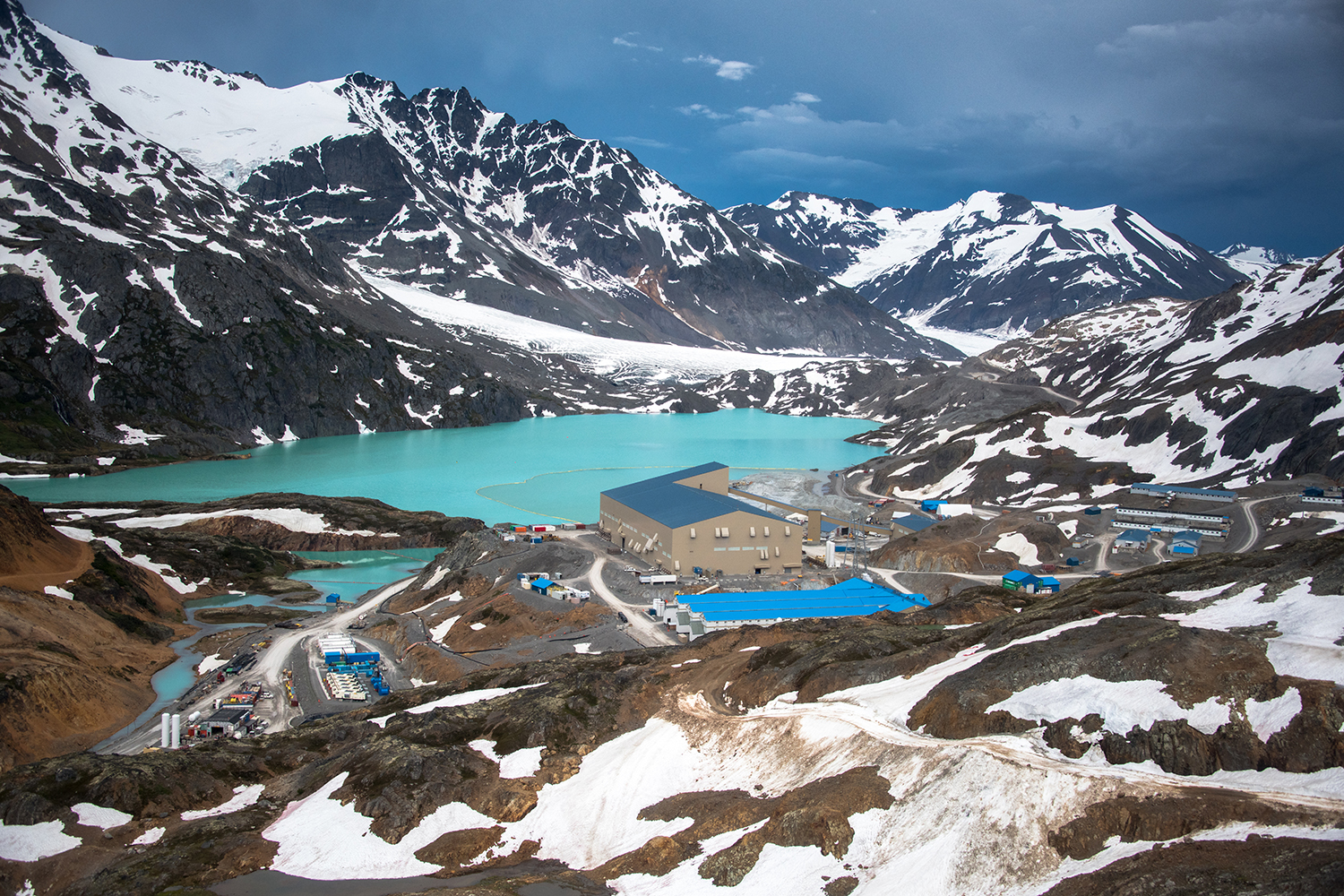
Share & Get Involved
Click images to view/share on LinkedIn.